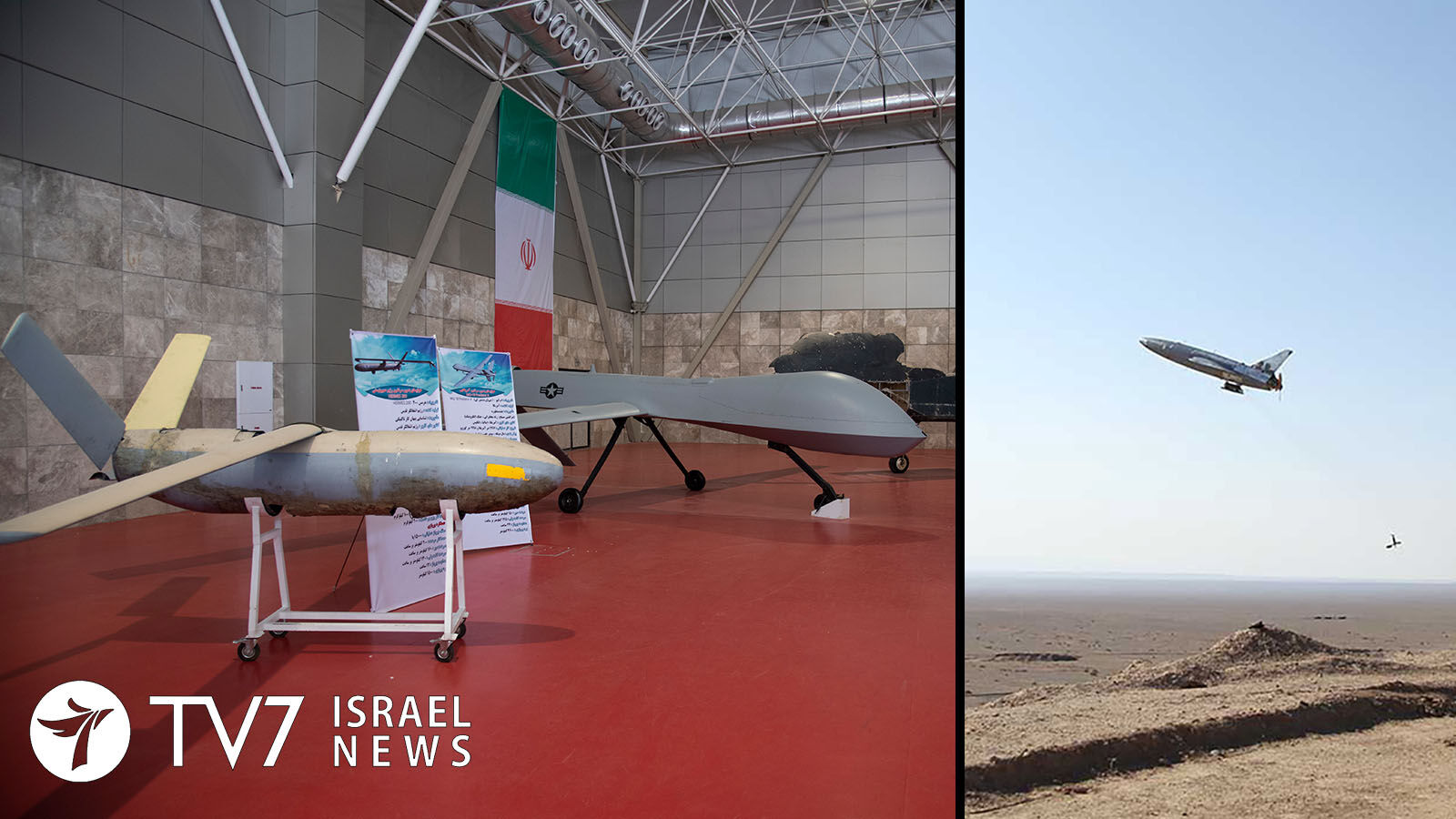As proof of “just how far Iranian aggression has reached,” Israeli Defense Minster Benny Gantz showed an image illustrating how Iran transfers munitions and technical expertise to Venezuela for the production of advanced UAVs during an address in Jerusalem to the Conference of Presidents of Major American Jewish Organizations.
By Jonathan Hessen and Erin Viner
“I have brought with me a single image – it really is worth a thousand words,” Minister Gantz said, explaining that it depicted the presentation of an advanced Iranian Mohajer unmanned aerial vehicle by Venezuelan President Nicolás Maduro.
“In addition to developing Iranian UAVs in Venezuela, our assessments show that Iranian precision-guided missiles (PGMs) are being delivered for these UAVs and other similar models,” Israel’s top defense official underscored, stressing that, “With this image in mind, I can tell you that in my meetings with partners from around the world, including African and Latin American partners – I heard extreme concern about Iranian support for terrorism. Iran truly is a global and regional challenge and not just a threat to the State of Israel.”
Calling for a united effort to prevent Iranian support of rogue regimes and terror organizations in South America, particularly in Venezuela and Africa, Defense Minister Gantz insisted that, “The international community, under US leadership must be proactive – taking defensive and offensive actions to counter direct and indirect Iranian aggression anywhere, anytime. We must address both Iran’s nuclear ambitions and its regional aggression. We have the capability to produce advanced defense systems, we have a duty to share intelligence, and we have the means, as a community, to pressure Iran.”
Amid looming ratification of the 2015 Joint Comprehensive Plan of Action (JCPOA) nuclear deal with Iran, Minister Gantz said the world community must retain “offensive capabilities and a set of sanctions ready in our back pockets in case Iran violates the agreement.”
In tandem, he added that world powers need to ensure the flow of tens of billions of dollars into Tehran’s depleted treasury will not be funneled to its regional terrorist proxies as had occurred after the original JCPOA was reached in 2015.
“Iran strives to be a hegemon. Its nuclear program is a major enabler for that, but it is just one part of it. The second is taking over failed states and conducting war by proxy,” said Minister Gantz. Pointing to the illustration he provided, he said, “As you can see behind me, during the JCPOA period, Iran increased its security budget by 50%. We must deal with Iranian aggression and support for their proxies and ensure that their “so-called” security budget isn’t increased and money isn’t poured into terrorism.”
“I have said this before, and I will stress this again. A nuclear deal, if signed with Iran – does not mark the end of the road. It opens the door to important action that must be taken. This includes monitoring open files. It also means stopping the development of ballistic missiles capable of carrying nuclear warheads,” emphasized the Israeli Defense Minister.
Going on to assert that Jerusalem is also committed to preventing unnecessary bloodshed and increasingly determined to stand shoulder-to-shoulder with its Gulf partners against Tehran’s malign actions.
“The foundation of the Abraham Accords and our ties with countries in the region has been based on diplomatic partnerships and people-to-people relations. We have recently added a new layer to our ties – that’s the defense relations. These ties are critical as we see the rise of Iranian aggression,” he said.
Expressing gratitude for the important work undertaken by the umbrella group of 51 organizations, Minister Gantz said, “Thank you for supporting and loving Israel – for never despairing or retreating from the struggle to improve the Jewish state. Thank you for investing in young generations of Jews so that they may know the story of their second home in Israel and continue the legacy of our eternal bond.”
